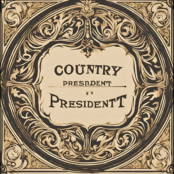Introduction
Country presidents play a crucial role in the governance and leadership of their respective nations. They are the heads of state, representing their countries both domestically and internationally. In this blog post, we will provide you with an overview of country presidents, their biographies, and some interesting information about different countries.
What is a Country President?
A country president is the highest-ranking official in a nation’s government. The specific powers and responsibilities of a president vary from country to country, depending on the political system in place. In some countries, the president is the head of state and holds significant executive powers. In others, the role may be more ceremonial, with the president serving as a symbol of national unity.
Biographies of Country Presidents
Each country president has a unique background and journey that led them to their position of leadership. Here are a few notable examples:
Barack Obama – United States
Barack Obama made history as the first African American president of the United States. Born in Hawaii in 1961, Obama studied law and served as a community organizer before entering politics. He was elected as the 44th president of the United States in 2008 and served two terms until 2017. During his presidency, Obama focused on issues such as healthcare reform, climate change, and economic recovery.
Angela Merkel – Germany
Angela Merkel, often referred to as the “Iron Lady” of Germany, has been the chancellor of Germany since 2005. Born in Hamburg in 1954, Merkel studied physics before entering politics. She became the first female chancellor of Germany and has been a key figure in European politics. Merkel is known for her pragmatic leadership style and her role in managing the European debt crisis.
Interesting Information about Countries
Countries around the world have diverse histories, cultures, and political systems. Here are a few interesting facts about some countries:
Japan
Japan, known as the Land of the Rising Sun, is an island nation in East Asia. It is famous for its rich cultural heritage, technological advancements, and beautiful landscapes. Japan has a constitutional monarchy, with the emperor serving as a ceremonial figurehead.
Brazil
Brazil, the largest country in South America, is renowned for its vibrant culture, samba music, and carnival celebrations. It is a federal republic, with a president as the head of state. Brazil is also home to the Amazon rainforest, which is the largest tropical rainforest in the world.
India
India, the seventh-largest country by land area, is known for its diverse culture, ancient history, and spirituality. It is a federal parliamentary democratic republic, with a president as the head of state. India is also the world’s largest democracy, with a population of over 1.3 billion people.
Conclusion
Country presidents play a crucial role in shaping the destiny of their nations. Their biographies and leadership styles provide valuable insights into their countries’ political landscapes. Understanding the unique characteristics of different countries helps us appreciate the diversity and richness of our world.
